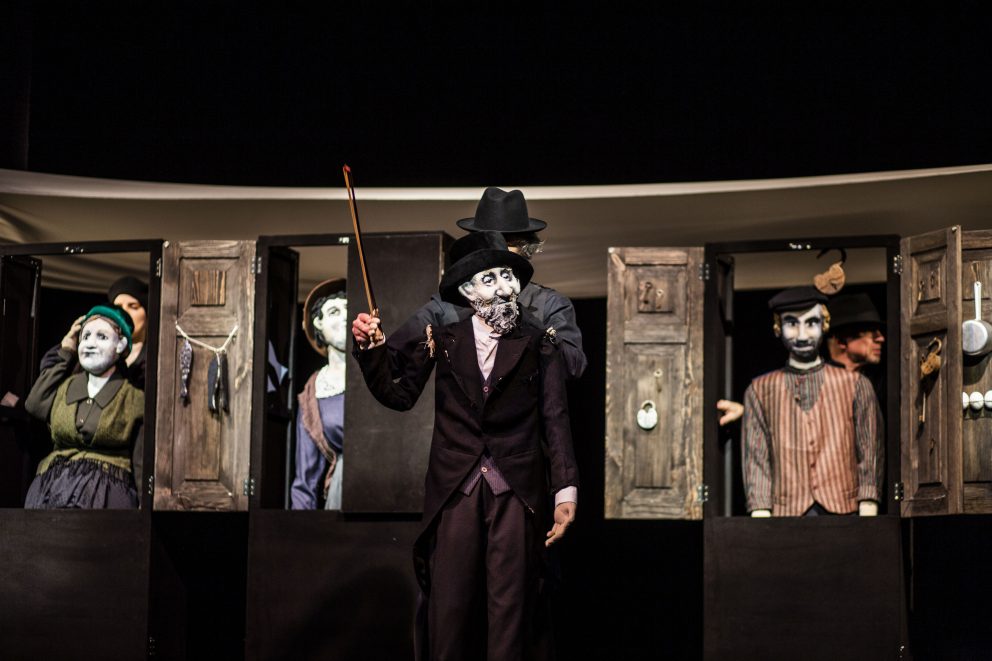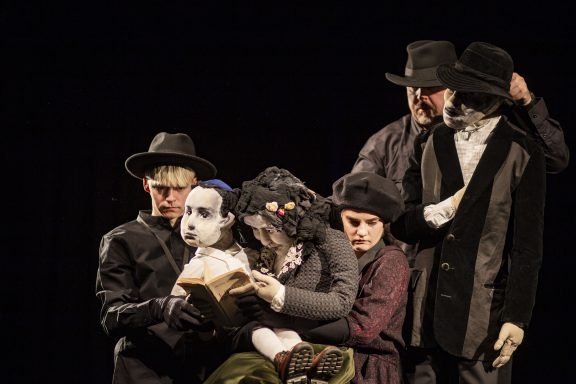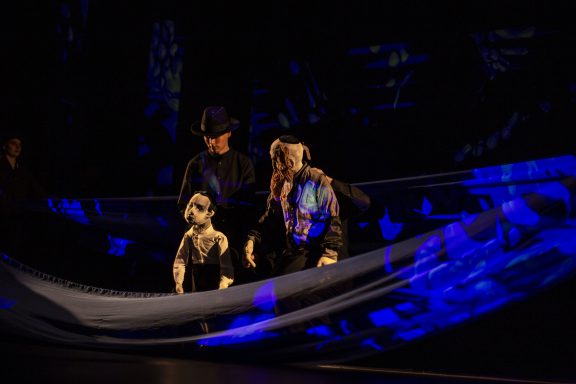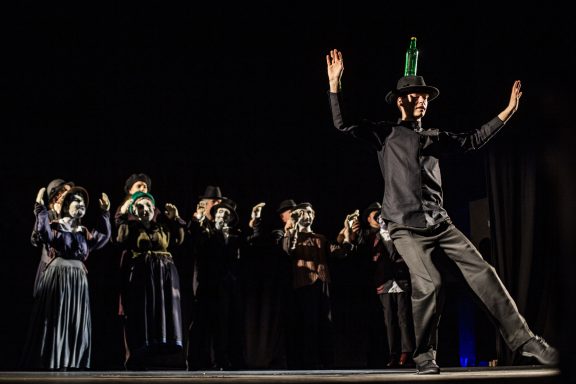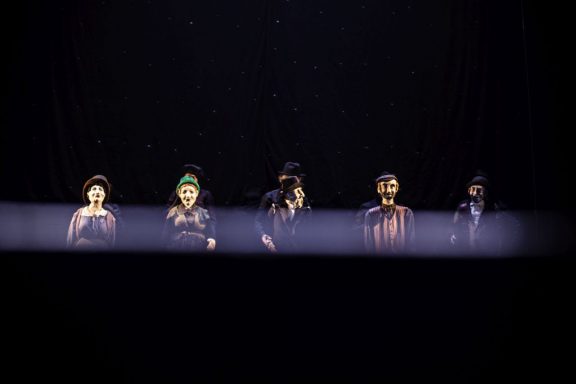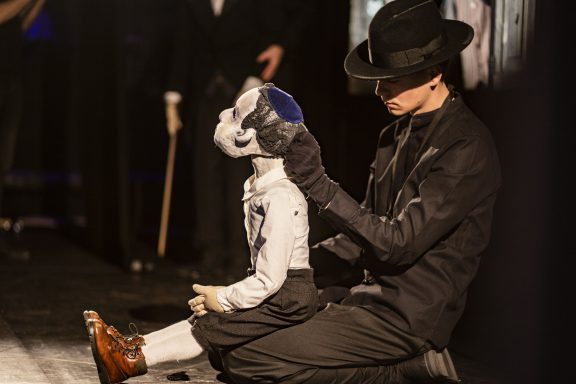Daiva Čepauskaitė
Dziennik Jakuba / Jacob’s Diary
tytuł oryginalny / original title: Jokūbo dienoraštis
Kauno valstybinis lėlių teatras, Kowno, Litwa / Lithuania
reżyseria / direction: Milda Mičiulytė
scenografia / scenography: Julija Skuratova
muzyka / music: Arkadijus Gotesmanas
projekcje wideo / video projections: Artis Dzerve
obsada / cast
Saulius Bagaliūnas, Darius Krapikas, Rūta Kumpikaitė, Rokas Lažaunykas, Laima Strazdauskienė, Andrius Žiurauskas
głosy nagrali / voice recordings
Jūratė Onaitytė, Rafailas Karpis, Vladas Bagdonas, Saulius Čiučelis, Aldona Vilutytė, Elzė Petrulėnaitė, Lėja Varonovaitė
wiek / age: 9+
czas trwania / duration: 75’
Miasteczko, w którym mieszka Jakub, może wyglądać podobnie do wielu innych litewskich miasteczek. Ale dla Jakuba jest tym ukochanym. Żyje tu jego dziadek – najlepszy szewc, który z kawałka materiału robi cuda, tata – dyrektor teatru, który uwielbia świat sceny, najbardziej troskliwa mama i wielu nieznajomych przemierzających ulice miasteczka. Sprzedaje się tu najsmaczniejsze pączki, najtłustsze ryby, snuje najbarwniejsze opowieści i przeżywa najdziwniejsze przygody. Tętni tu życie, ludzie kłócą się, godzą, zakochują, marzą.
Ale pewnego dnia zaczyna się wojna. Jakub chowa się w piwnicy, a gdy wychodzi, zastaje puste ulice miasta. Gdzie oni są – uliczni sprzedawcy, muzycy, drogie i bliskie twarze, wszyscy, którzy mieszkali w pobliżu? Gdzie oni są teraz? Co zrobić, gdy zniknął nawet najmniejszy kawałek materiału, z którego można coś uszyć? Co nam pozostaje, gdy nie ma już nic?
Opowieść wykorzystuje baśnie żydowskie, elementy folkloru, poezję Matyldy Olkinaitė oraz motywy z książki Abraoma Karpinoviča Ostatni prorok z Wilna.
The town where Jacob lives may look similar to many other Lithuanian towns. But he is the beloved of Jacob. Here lives his grandfather – the best seamster, who works wonders from a piece of material, his dad – the director of the theater, who adores the world of theater, the most caring mother and many strangers wandering the streets of the town. The most delicious donuts, the fattest fish are sold here, the most colorful stories are followed and the strangest adventures take place. Life boils here, people scold, peace, fall in love, dream.
But one day the war begins. Jacob hides in the basement, and when he comes out, he finds the empty streets of the town. Where are they – all the street vendors, musicians, dear and close faces who lived nearby? Where are they now? What to do when even the smallest piece of fabric from which something can be sewn is gone? What is left for us when there is nothing left?
The story is created using Jewish fairy tales, folklore elements, the poetry of Matilda Olkinaitė and the motifs of Abraom Karpinovič book The Last Prophet of Vilnius.
foto: archiwum teatru
